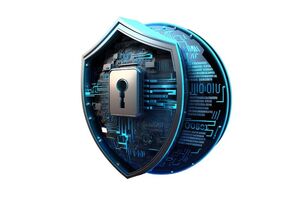How to Prevent and Manage Hacking

Have you ever been hacked?
Are you prepared to deal with potential hacking of your computer or social media platforms?
In the age of constant computer use, hacking is a serious crime. Sadly, it’s also very common, and victims can suffer anything from a minor inconvenience to a completely destroyed livelihood.
We decided to take a page from our sister company, Network Services Group, and share their expert advice on protecting yourself from cyber-attacks. Here are their pointers:
Be aware, be suspicious, be vigilant. Tricking you into giving out personal information is what scammers and hackers do best. Don’t give out any passwords without first verifying the person you’re talking to is legitimate.
Use strong passwords. We recommend at least eight characters, with a mixture of uppercase and lowercase letters, numbers, and punctuation.
Don’t use the same password for multiple accounts. Your email is a gateway to most of your other passwords, especially with the “forgot password” function. Use a unique and strong password for your email account and change it regularly.
Know where your data is saved, and make sure it is backed up. Ransomware is a new breed of virus/malware, and once a hacker infects your machine, they actively seek out all of your data files and encrypt them, rendering them useless. Make sure your data is backed up so in the case of a security breach, you still have access to it.
Use extreme care when opening attachments or downloads. Be cautious when clicking on links or buttons contained within emails or social media messages. If you’re concerned, visit the requesting site/profile by manually typing the URL. Never click on an unknown link as it may direct you to a phishing site. Never open attachments from an unknown or suspicious source.
As frustrating as it can be, 2-factor authentication is a worthwhile safety net that can help you recover access to your accounts if a hacker has changed your passwords. You can use your phone number, but there are also verification apps, such as Google Authenticator and Microsoft Authenticator, that you can use if you want to try to avoid using a phone number.
What do You do if You’re Hacked?
If you ARE hacked, the best thing you can do is immediately report it. If you’re hacked on social media, you’ll probably get an email saying that passwords or emails are being changed; make use of the “this wasn’t me” function in those emails. Try to change your passwords and lock down your accounts as soon as possible. It might not be in your power to remove the hacker from the account completely, but you CAN lock down the account to keep them from doing any more damage.
Once that’s done, you should talk to the support team of the platform you were hacked on. This could be the support team directly tied to the platform, such as the Meta support team for Facebook and Instagram; or, if your business website was hacked, then you may have the option to work with an IT company to restore control.
Manage Your Media with an Ann Arbor SEO Company
When Michigan SEO Group manages your website and social media, we do everything in our power to secure your data and keep out hackers. If you’re looking at Ann Arbor SEO Companies, reach out to our team here or call (877) 815-6974 to get started.









